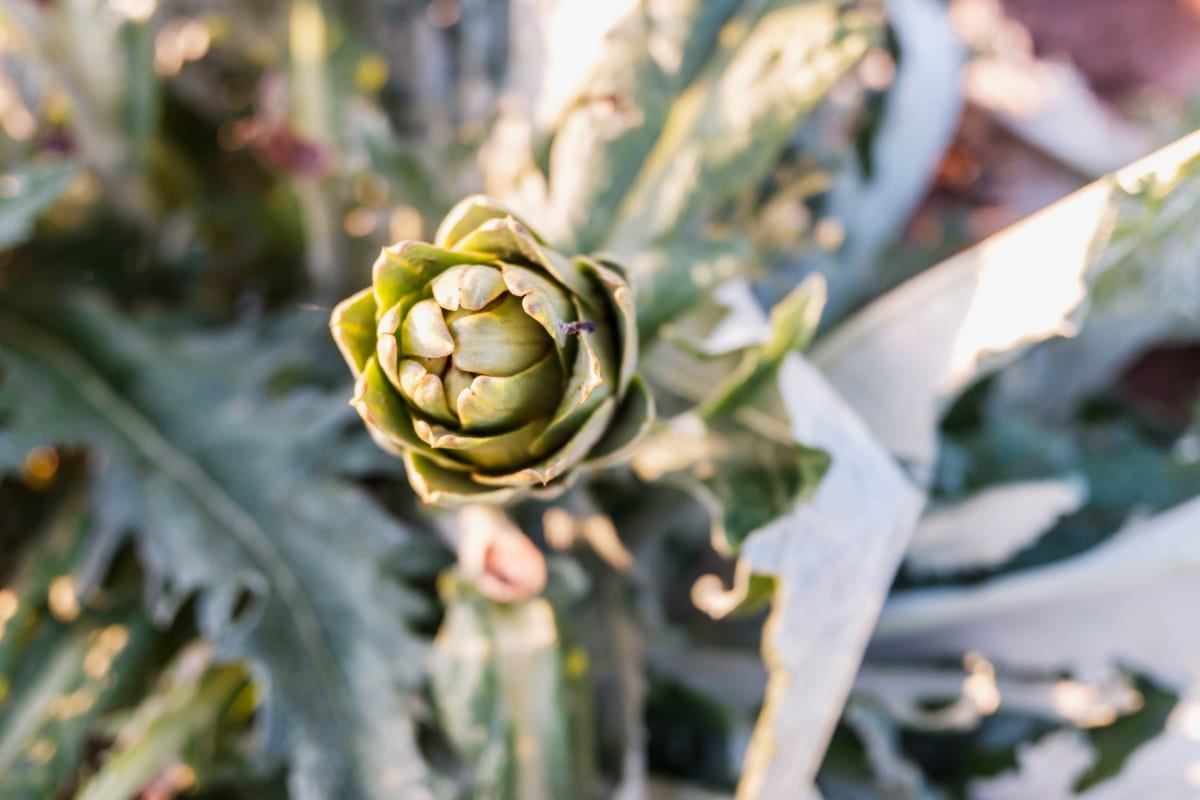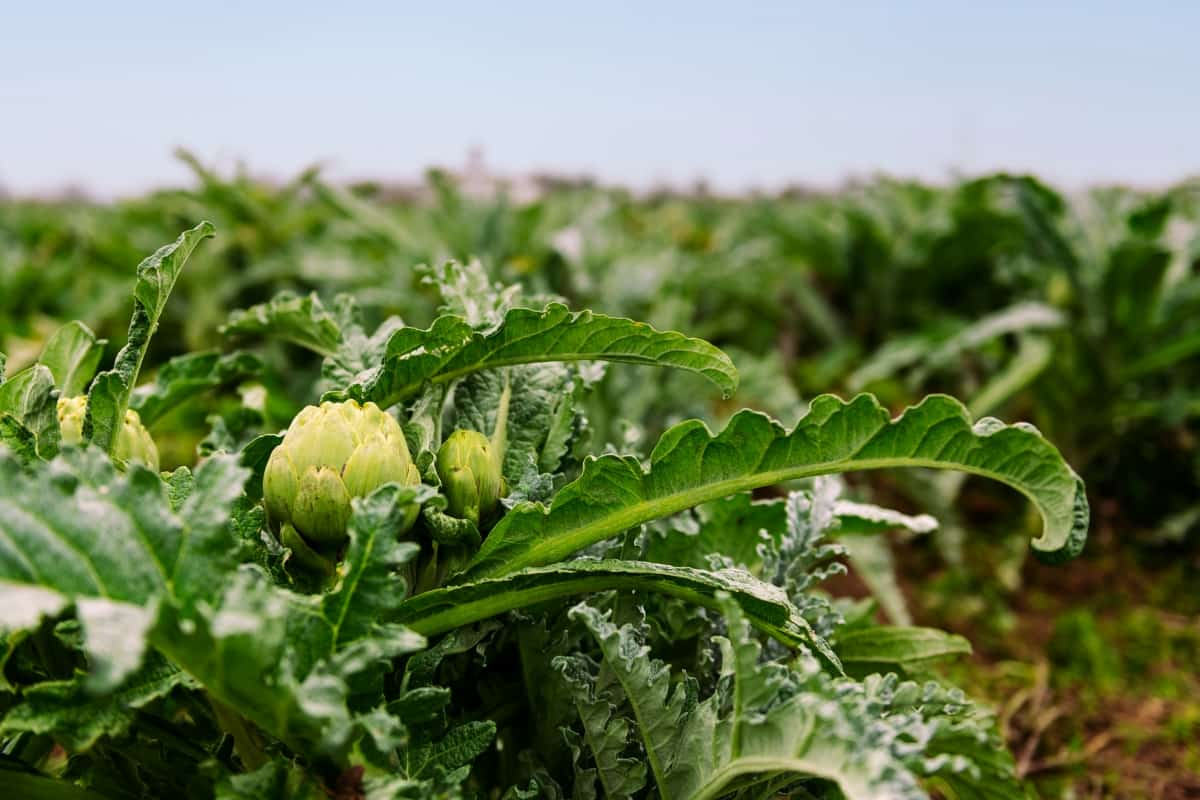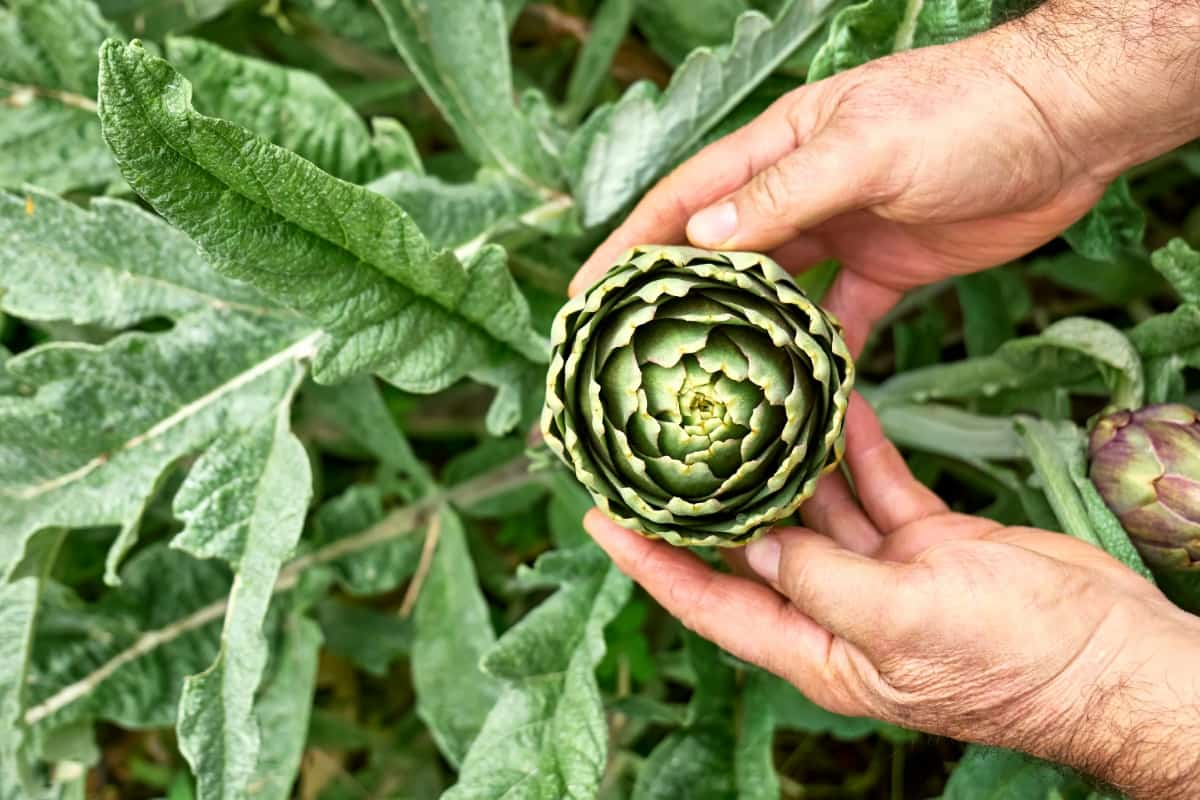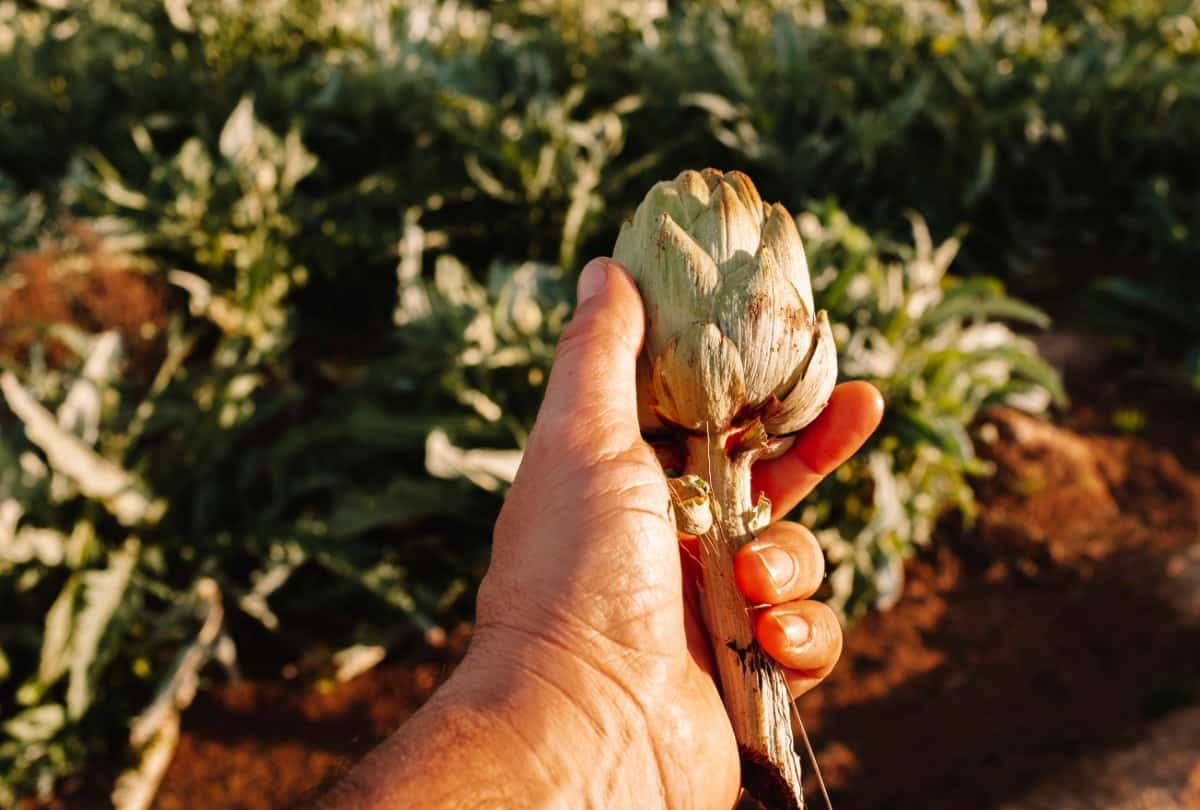Organic methods for growing healthy and flavorful Artichokes offer a multitude of benefits. Organic cultivation eliminates the use of harmful synthetic pesticides and fertilizers, ensuring that the Artichokes are free from chemical residues. This not only contributes to better overall health but also enhances the flavor profile of these delicious vegetables.

Organic Methods for Growing Artichokes
Benefits
Growing your organic Artichokes allows you to reap even more benefits. By avoiding synthetic pesticides and fertilizers commonly used in conventional farming methods, you can enjoy chemical-free produce that’s safe for consumption. Organic practices prioritize soil health and fertility.
Furthermore, choosing to grow Artichokes organically helps protect biodiversity. The absence of synthetic pesticides allows beneficial insects such as ladybugs and bees to thrive, contributing to a balanced ecosystem within your garden or farm. By opting for organic methods of cultivation for your Artichoke crops, you support environmental sustainability efforts.
Implementing Sustainable Practices
By adopting environmentally friendly methods, farmers can ensure the long-term health and productivity of their crops while preserving natural resources. The key practice is utilizing organic fertilizers and compost to nourish the soil. Additionally, rotating crops helps prevent disease buildup in the soil. Water management is another important aspect of sustainability. Pest control can be achieved through IPM techniques rather than relying solely on chemical pesticides. Implementing sustainable practices involves promoting biodiversity within Artichoke farms.
Exploring Natural Pest Control Methods
The effective method is using beneficial insects such as ladybugs or lacewings. These tiny warriors feast on aphids and other harmful pests, keeping them in check without the need for chemical sprays. Plus, it adds an element of biodiversity to your farm. Another option is companion planting.
Certain plants have properties that repel pests naturally. For example, planting marigolds near your Artichokes can deter nematodes and other harmful insects. Regularly inspecting your plants is crucial in identifying pest problems early on. By catching infestations before they become severe, you can take appropriate action promptly.
Enhancing Soil Health
Healthy soil is the main factor of any successful organic Artichoke farm. By focusing on enhancing soil health, farmers can ensure robust and flavorful yields year after year. The main method is through the use of compost or organic matter. Crop rotation is another effective technique that farmers can employ to enhance soil health.
In case you missed it: How to Prune Artichoke Plants for Optimal Growth

Cover cropping is yet another strategy worth considering for improving soil quality. Planting cover crops like legumes or grasses during fallow periods not only prevents erosion but also adds nitrogen back into the soil through natural processes.
Maximizing Flavor and Nutrition
The important factor in maximizing flavor and nutrition is harvesting the Artichokes at just the right time. Waiting until they have reached their optimal size and maturity ensures a rich taste and maximum nutritional value. Furthermore, organic fertilization techniques are employed to provide necessary nutrients without compromising on quality or taste.
Natural sources like composted manure or seaweed extracts not only supply vital elements but also contribute to overall plant vitality. To maintain robust yields year after year, harnessing biodiversity is essential in organic Artichoke cultivation. Introducing beneficial insects helps control pests naturally while preserving a harmonious ecosystem within the farm.
Organic Fertilization Techniques
An effective technique is composting. Composting not only recycles kitchen scraps and yard waste but also enriches the soil with essential nutrients. You can create your compost pile using a mix of green materials (like vegetable peels and grass clippings) and brown materials (such as dried leaves or straw). This nutrient-rich compost will enhance the fertility of your Artichoke beds.
Another method is using organic manure or plant-based fertilizers. These options provide an excellent source of nitrogen, phosphorus, and potassium – all vital for healthy plant growth. Look for products made from natural ingredients like seaweed extracts or fish emulsions.
Harnessing Biodiversity
Artichoke crops are not only delicious and nutritious, but they also thrive when surrounded by a diverse range of plants and organisms. Harnessing biodiversity in Artichoke farming is an organic method that promotes resilient and sustainable crop production. By creating a habitat that attracts beneficial insects, birds, and other wildlife, farmers can naturally control pests without resorting to harmful chemicals.
Planting flowers with vibrant colors will draw pollinators like bees and butterflies, ensuring efficient fertilization for the Artichokes’ reproductive cycle. In addition to attracting pollinators, incorporating cover crops into the Artichoke fields can enhance soil fertility by fixing nitrogen and preventing erosion. Legumes such as clover or vetch are excellent choices as they enrich the soil with essential nutrients while suppressing weed growth.
Organic Weed Management Strategies
Weeds can compete with Artichokes for nutrients and water, reducing their growth and yield. Mulching is a popular method used by organic Artichoke farmers to suppress weeds. Organic mulch materials like straw or wood chips can be spread around the plant base to smother emerging weeds and prevent new ones from sprouting.
In case you missed it: Propagation of Artichokes: Different Methods and Techniques

Hand weeding is another essential practice in organic Artichoke farming. While it may be time-consuming, removing weeds manually ensures that they are completely eradicated without using any harmful chemicals. Cover cropping is yet another valuable technique for controlling weeds organically in Artichoke farms. Planting cover crops like clover or buckwheat helps to shade out weeds while adding beneficial nutrients to the soil when they are later incorporated as green manure.
Promoting Pollinator Diversity
Creating a thriving ecosystem within your organic Artichoke garden is not just about the plants themselves. It’s also about the tiny but mighty creatures that play a crucial role in pollination, such as bees and butterflies. By promoting pollinator diversity, you can enhance the health of your Artichoke crop while supporting these important insects. The main way to attract pollinators is by planting flowers alongside your Artichokes. Choose native flowering plants that bloom throughout the growing season, providing a continuous food source for bees and butterflies.
This will entice them to visit your garden regularly, increasing the chances of successful pollination. Another strategy for attracting diverse pollinators is creating habitat diversity within your garden. Water sources are essential for maintaining healthy populations of pollinators. Consider adding shallow dishes filled with water or installing small birdbaths in strategic locations around your garden. Remember to keep these sources clean and replenish them regularly.
Sustainable Water Management
By implementing smart irrigation techniques, such as drip or micro-sprinkler systems, farmers can ensure that water is delivered to the root zone of the plants without wastage. This saves precious water resources and also helps prevent weed growth by avoiding unnecessary wetting of surrounding areas.
Additionally, capturing rainwater for irrigation purposes can significantly reduce dependency on traditional water sources. Installing rain barrels or cisterns allows farmers to collect and store rainfall during periods of abundance for use during drier times, promoting sustainability throughout the growing season.
In case you missed it: How to Protect Artichoke Plants from Pests and Diseases

Conclusion
Organic methods for growing Artichokes are not only beneficial for the environment but also play a crucial role in ensuring the quality and taste of these delightful vegetables. Additionally, organic Artichoke cultivation methods enhance soil health by prioritizing the use of compost and other natural amendments.
- Feed Your Flock for Less: Top 10 Tips to Save on Chicken Feed
- Ultimate Guide to Ossabaw Island Hog: Breeding, Raising, Diet, and Care
- Hatching Answers: The Top 10 Reasons Your Chickens Aren’t Laying Eggs
- Eggs and Economics: Breaking Down the Cost of Raising Backyard Chickens
- Defend Your Greens: Proven Methods to Keep Iguanas Out of Your Garden
- Ultimate Guide to Cinnamon Queen Chicken: A Comprehensive Guide for Beginners
- Ultimate Guide to California Tan Chicken: Breeding, Raising, Diet, Egg-Production and Care
- Ultimate Guide to Marsh Daisy Chicken: Breeding, Raising, Diet, and Care
- 10 Types of Chicken Farming Businesses You Can Start for Profits